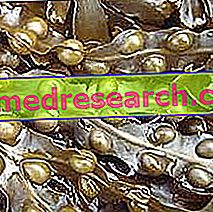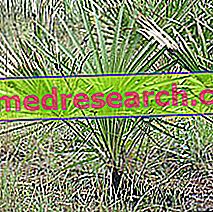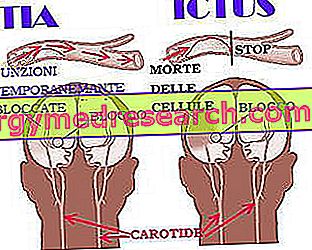
Scientific name
Fucus vesiculosus
Family
fucoidsUsed Parts
Of the Fucus, the dried thallus is used, which comes in flat, cartilaginous, ribbon-like pieces of blackish color.
Synonyms
Marine oak
Chemical constituents
- mucopolysaccharides;
- Sulphured esters;
- Trace elements, including iodine (Fucus FU contains at least 0.05% iodine);
- Polyphenols (florogucinol, fucoli);
- Tannins;
- Sterols (fucosterol).
Fucus in Herbalist: Property of the Fucus
The Fucus is the most well-known seaweed, because it is used improperly as a slimming and anti-cellulite remedy, as it is considered a valid 'thyroid stimulant' even if in reality it is endowed with completely different pharmacological activities.
Due to the iodine content, the main properties include the use in the treatment of some forms of hypothyroidism and obesity.
Watch the video
X Watch the video on youtubeWarnings
The average daily iodine requirement is 150 mcg; it is therefore advisable not to exceed this threshold, otherwise there is the risk of interfering with the thyroid function. For this reason, it is important to prescribe only products with a defined amount of iodine.
Side effects
Cases of hyperthyroidism and acne eruptions have been reported after taking Fucus extracts.
Contraindications
In the use of Fucus particular attention must be paid by patients with hyperthyroidism. Avoid taking in case of proven hypersensitivity.
Pharmacological Interactions
Prolonged intake of alginates can reduce the absorption of iron and other minerals in the intestine.
Lithium carbonate enhances the hypothyroid effects of many iodine compounds such as Fucus.



